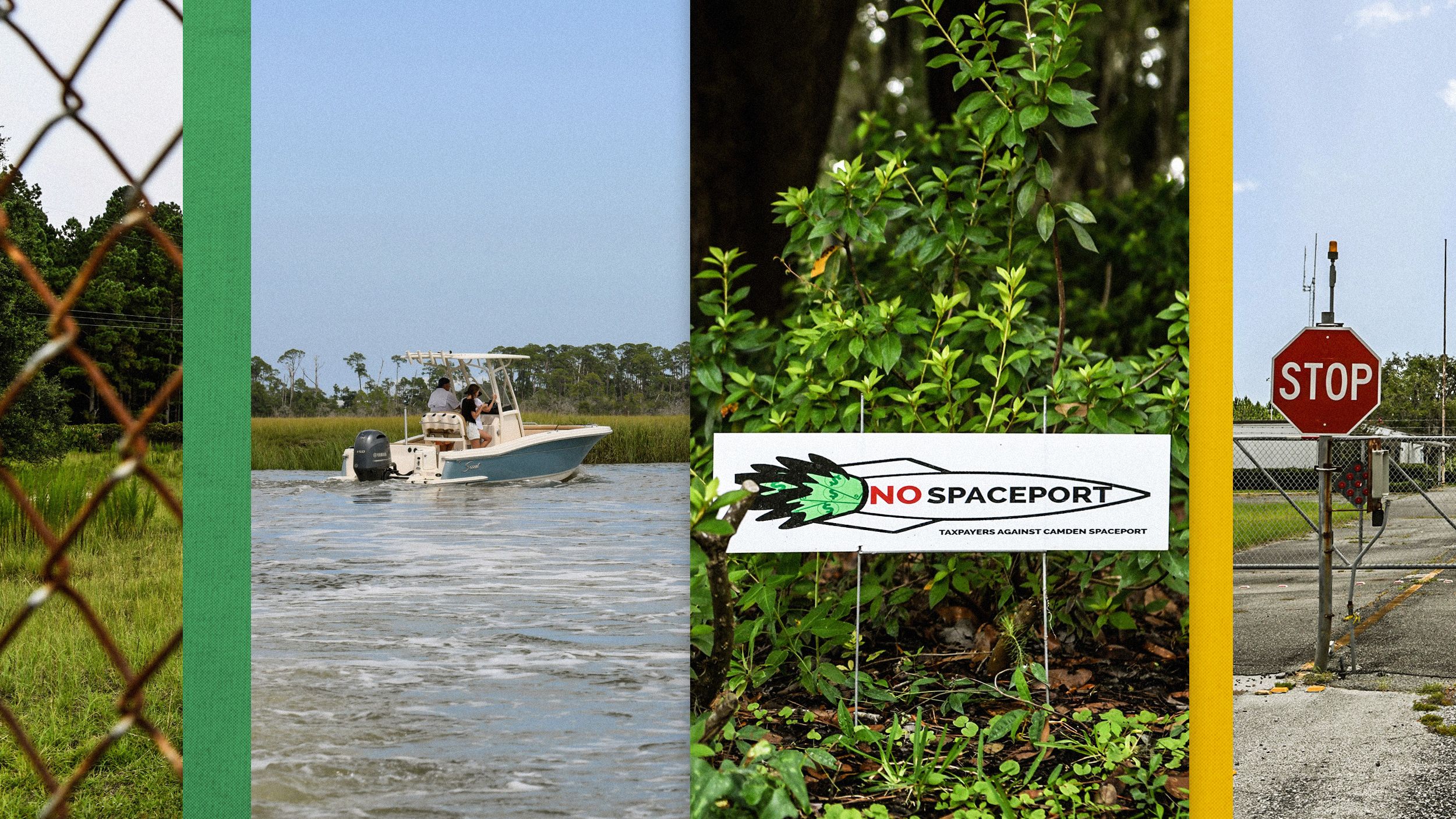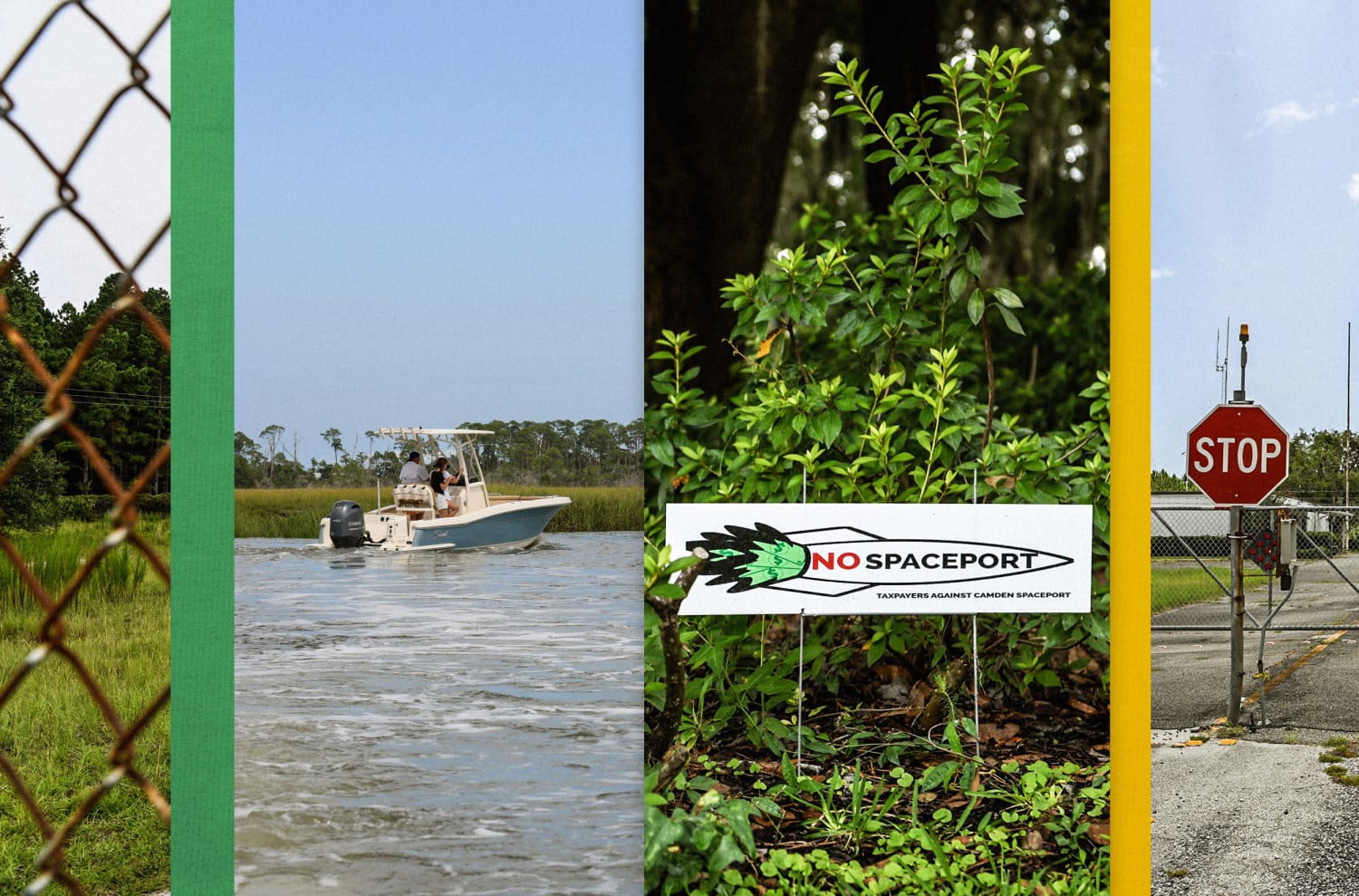
“We’re paying taxes year after year after year for the spaceport, but nothing has materialized,” said Camden resident Steve Weinkle, who has become one of the most vocal opponents of the project. “This is our ‘bridge to nowhere.’”
Scenes like the one in Camden County are playing out in other corners of the country.
Commercial spaceports have been sold to various communities as an investment in the future, but even when they are built, they are often not the economic engines they were promised to be. The FAA has licensed 14 spaceports around the U.S., but more than half of them have yet to host a single licensed launch. And all too often, the incentives for building them can easily get twisted, leaving some to wonder about the true cost of America’s spaceports.
It’s easy to see the lure of a spaceport. Investment in space startups surged in recent years, and major U.S. banks have released projections for considerable growth matched by warnings about risk. Falling launch costs triggered by improved technologies have opened the door for many emerging private aerospace firms, and a new class of launch operators is vying to compete with companies like SpaceX and Blue Origin to put payloads into space.
Those rockets need places to take off from, which is where commercial spaceports come in. These futuristic-sounding facilities — consisting of launch pads, runways and mission control centers typically built on thousands of acres of land — essentially function like airports but to loft satellites and other payloads into orbit.
But even as the commercial space industry has boomed in recent years, the business of spaceports has not.
Some sites such as the Colorado Air and Space Port near Denver and the Midland International Air & Space Port in West Texas are still waiting to host their first licensed launch. Other expensive and underused facilities such as New Mexico’s Spaceport America have some experts wondering if there’s a real need for so many launch sites. What has emerged is an environment where the ambitions of local officials, the motives of outside consultants and gaps in the government’s own regulations can fuel the type of gold rush typical of any burgeoning industry, said Greg Autry, an expert on space policy.
“This happens in any technology market — it’s inevitable,” Autry said. “It’s no different from the boom that you had with the internet in the ‘90s or the crypto investors a few years ago. You get a lot of people where this is not their domain and they make poor investment decisions.”
It’s a feeling that is familiar by now to many Camden residents. Weinkle himself remembers being drawn to the project early on. He even talked about being able to enjoy stunning views of rockets blasting into orbit from the back porch of the dream home he and his wife built in retirement.
“I was excited at first that there was this opportunity for Camden County,” he said. “I was eager to see the county make a bold leap with the space race.”
Yet by the end of 2015, he said, it felt like things were not adding up. Weinkle’s early concerns would turn out to be just the beginning of his yearslong fight against the spaceport and its backers, one that would see him emerge as one of the community’s de facto hell-raisers as the project faced mounting backlash, a decisive referendum vote earlier this year and a flurry of lawsuits.
“I quickly saw that the economics were going to be challenging even if rocket launches did occur,” Weinkle said. “As a taxpayer, I became very worried about that.”
‘Our Yosemite’
On its face, Spaceport Camden seems like an odd place to try to launch rockets.
It’s the only licensed spaceport in the country that proposes flying rockets over people and their homes, on two nearby barrier islands, Cumberland Island and Little Cumberland Island. The spaceport itself would be located on a brownfield site with a long — and toxic — history, where chemicals, pesticides and munitions were once manufactured. The 4,000-acre property is now owned by Union Carbide Corp. and its parent, Dow Chemical Co.
There are also myriad environmental concerns that go with launching rockets along a federally protected seashore, with marshes, waterways and beaches that support the Georgia coast’s flora, fauna and their fragile ecosystems (the FAA analyzed the potential consequences to Camden County’s wetlands and waterways as part of the agency’s environmental impact statement and included measures to minimize those risks). The National Park Service manages the land on Cumberland Island, and it is home to several historic sites, including the First African Baptist Church. Both Cumberland and its smaller neighbor to the north, Little Cumberland Island (which is not managed by the National Park Service), remain largely undeveloped, and the community wants to keep it that way.
“This is our Yosemite,” said Jim Renner, a geologist and one of around 86 landowners with property on Little Cumberland Island. “If somebody said they were going to start launching rockets in the middle of Yosemite, heads would roll.”
Source: | This article originally belongs to Nbcnews.com









